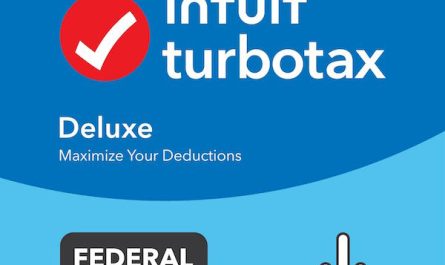How to save on taxes this year? These nine strategies may help you cut your tax bill this year.
As tax season approaches, it’s crucial for taxpayers to explore strategies that can help minimize their tax liabilities. While paying taxes is a responsibility, there are legal ways to reduce what you owe. This comprehensive guide delves into nine effective strategies to help you save on taxes this year. Whether you’re an individual taxpayer or running a business, these tips are designed to enhance your tax efficiency and optimize your financial planning.
Tax Savings These nine strategies may help you keep more of your hard-earned money.
Maximize Retirement Contributions

One of the most straightforward ways to reduce taxable income is by maximizing contributions to retirement accounts like 401(k)s or IRAs. Contributions to these accounts are often tax-deductible, lowering your overall taxable income. Check the contribution limits for this year and try to contribute the maximum amount allowed.
Maximizing retirement contributions is a pivotal strategy in both financial planning and tax savings. By contributing more to your retirement accounts, such as 401(k)s, IRAs, or Roth IRAs, you not only secure a more stable financial future but also can significantly reduce your current taxable income. Contributions to traditional retirement accounts are often tax-deductible, lowering your annual tax bill. Additionally, these funds grow tax-deferred, compounding over time without immediate tax implications. This approach is a dual-benefit move — preparing for a comfortable retirement while efficiently managing your tax obligations in the present, making it a wise financial decision.
Utilize Health Savings Accounts (HSAs)
If you have a high-deductible health plan, contributing to a Health Savings Account (HSA) can offer tax benefits. Contributions are tax-deductible, the money grows tax-free, and withdrawals for qualified medical expenses are not taxed. Maximize your HSA contributions to take full advantage of these tax savings.
Harvest Investment Losses

Tax-loss harvesting involves selling investments at a loss to offset capital gains tax liabilities on other investments. This strategy can be particularly beneficial in years when you have realized significant capital gains. Consult with a financial advisor to effectively implement this strategy.
Tax-loss harvesting is a savvy investment strategy used to reduce taxes on capital gains. It involves selling investments that are at a loss and replacing them with similar investments to maintain your portfolio’s balance. The realized losses from these sales can offset taxable capital gains from other investments. If your losses exceed your gains, you can also use up to $3,000 of excess loss to offset ordinary income, potentially lowering your overall tax liability. This technique is most effective in taxable investment accounts and requires careful management to align with your investment goals while optimizing tax benefits. Proper timing and market understanding are key to its success.
Claim All Eligible Tax Deductions and Credits
Ensure you’re taking advantage of all the tax deductions and credits available to you. Common deductions include mortgage interest, charitable donations, and certain business expenses. Tax credits like the Child Tax Credit or Education Credits can directly reduce the amount of tax you owe.
Eligible tax deductions and credits are crucial components of tax filing that can significantly reduce your tax liability. Deductions lower your taxable income, with common examples including mortgage interest, charitable contributions, certain medical expenses, and business-related costs. Tax credits, on the other hand, directly reduce the amount of tax you owe, dollar for dollar. These include credits like the Child Tax Credit, Education Credits, and the Earned Income Tax Credit. Each credit and deduction has specific eligibility criteria, so it’s important to understand which ones apply to your situation to maximize your tax savings effectively. Staying informed about these can lead to substantial financial benefits.
Invest in Tax-Efficient Funds

Consider investing in tax-efficient funds, such as index funds or ETFs, which typically have lower turnover rates and thus generate fewer taxable capital gains distributions than actively managed funds.
Investing in tax-efficient funds is a strategic approach to minimize tax liabilities on investment earnings. These funds, such as index funds and exchange-traded funds (ETFs), are designed to generate lower capital gains distributions, thus reducing your tax burden. Their tax efficiency comes from low turnover rates, meaning they buy and sell securities less frequently. This results in fewer taxable events, allowing more of your investment to grow over time. By focusing on these types of funds, investors can enjoy better after-tax returns, making them an attractive option for those with taxable investment accounts seeking to optimize their investment strategy with tax considerations in mind.
Consider a Flexible Spending Account (FSA)
Similar to HSAs, FSAs allow you to set aside pre-tax dollars for certain out-of-pocket health care and dependent care expenses. Using an FSA effectively can reduce your taxable income.
Explore Education Savings Accounts
If you’re saving for education, vehicles like 529 plans offer tax-free growth and tax-free withdrawals for qualified education expenses. Contributions to these plans may also be state tax-deductible.
Adjust Your Withholding
If you consistently receive large tax refunds, consider adjusting your tax withholding with your employer. While a large refund may seem beneficial, it essentially means you’re giving the government an interest-free loan. Adjusting your withholding can increase your monthly income and improve your cash flow.
Consult a Tax Professional
Tax laws are complex and ever-changing. Consulting with a tax professional can provide personalized advice based on your individual financial situation. They can help identify additional savings opportunities and ensure you’re compliant with tax regulations.
Implementing these nine strategies can lead to significant tax savings. Remember, the key to maximizing tax efficiency lies in understanding your personal financial situation and staying informed about tax laws and regulations. By taking proactive steps and possibly consulting with a tax professional, you can make the most of your finances and save on taxes this year.
Casualty Loss
When writing about a casualty loss, it’s essential to accurately detail the unexpected property damage stemming from sudden, unforeseen events like natural disasters. This documentation is crucial for tax purposes, as casualty losses can sometimes be deducted. The key elements include describing the cause of the loss (fire, flood, earthquake), the extent of the damage, the property’s value before and after the event, insurance reimbursements, and efforts made to salvage or repair the property. Clear, concise, and factual writing ensures that the loss is appropriately recorded and assessed, aiding in potential tax relief and insurance claims processes.
Remember to always stay compliant with IRS regulations and seek professional advice for complex tax situations. With the right approach, you can navigate tax season with confidence and financial savvy.

Tax Preparation
Free Tax Software
TurboTax Free Edition: Experience Zero-Cost Tax Filing
Which TurboTax version is best for you in 2024?
Tax Filing Season Dates
TurboTax vs. H&R Block
9 Ways You Can Save on Taxes This Year
TurboTax Desktop Deals
Small Business Tax Software
Free Student Tax Filing
e-file.com | E-file.com Premium Plus | Deluxe Plus Edition
TurboTax | TurboTax Deluxe | TurboTax Premium | TurboTax for Student
H&R Block
TaxSlayer
Jumpstart Your Taxes: Unbeatable Deals
Tax Season FAQs – Frequently Asked Questions
Early Bird Discounts: Take advantage of early tax filing offers
Jackson Hewitt




